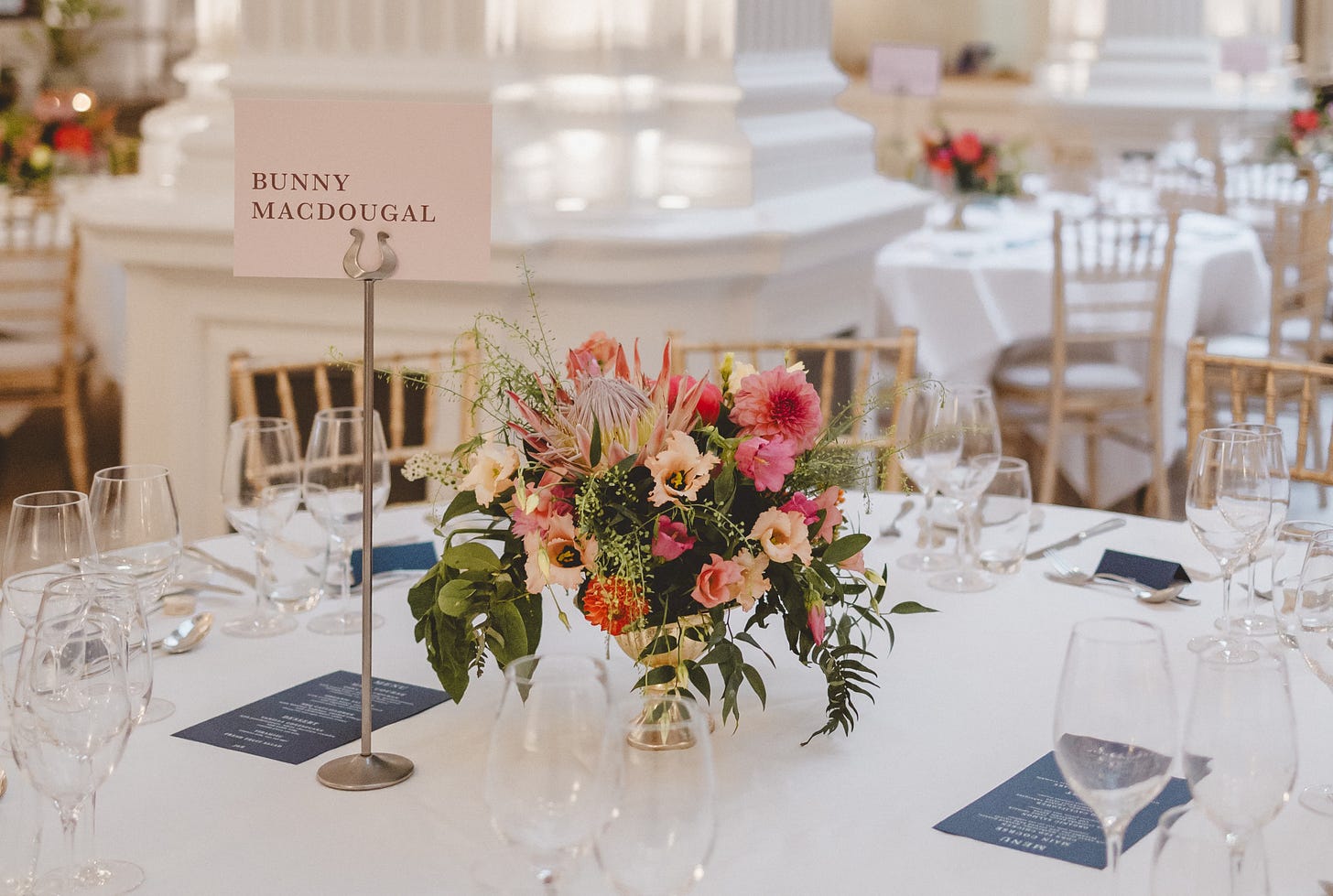Help! I set my friends up on a date and now they're getting married
Badly done, Emma. Badly done.
“Do you know any single men, Jack?”
“Lots!”
My friend shot a look in my direction with the studied scepticism of a woman in her mid-thirties.
“Oh, you mean straight men,” I clarified. “No, not really.”
I’d never set any two friends up, though I had seen the 1996 film adaptation of Jane Austen’s Emma starring Gwyneth Paltrow (who my year nine English teacher, a wonderfully acerbic, impeccably dressed and encouragingly camp man referred to as “the woman with the exceptionally long neck”).
So I knew that being an upper-class matchmaker wasn’t all it was cracked up to be — even if you got to live in Highbury. But a few months after that initial conversation, a man became available. He had broken up with his girlfriend and I figured enough time had elapsed to make an introduction potentially viable. In Sex and the City parlance, his light was on.
Editor’s Note: In a 2000 episode of the show, Miranda Hobbes (sorry, I know, you’re more of a Charlotte) proclaimed that men are like cabs:
“When they’re available, their light goes on. They wake up one day and they decide they’re ready to settle down, have babies, whatever, and they turn their light on. The next woman they pick up — boom! That’s the woman they marry. It’s not fate. It’s dumb luck.”
I approached the single straight male in question, who for our purposes we’ll call ‘Mr Knightley’. He agreed to be set up, numbers were exchanged, and I consciously uncoupled from any formal role. Like parenting or baking a soufflé, you’ve just got to put them in the oven, set a timer and hope you raised them well.
Now, on reflection, did I give it enough thought? Or any at all? To be fair, they were both of a similar age, education and temperament. They were also both conventionally attractive. I didn’t want this to be like that episode of Seinfeld, when Jerry sets up George (unemployed, amoral, bald) with Elaine’s friend Cynthia, played by the delightful — and future Janice from Friends — Maggie Wheeler.
A date happened. Then a second, and a third, possibly even a fourth. But it fizzled out in the way that most courtships do. Diaries were tight, sparks failed to ignite, I don’t know. I was neither relieved nor disappointed — I had problems enough around this time.
The social event of the year
Fast forward a couple of years (and, for our Mr. Knightley, another ex-girlfriend) and both parties were invited to my wedding. When it came to table plans, I concluded that, given the brief duration of their relationship and its amicable conclusion, it was safe to seat them at the same table, albeit on opposite ends.
On the day itself, it became clear that the celebration of me and my husband’s love and commitment was secondary to what was going on between the two of them. Such was the “sexy body language” in the corner that I half-considered rushing out to a bakery to have their names re-piped onto my wedding cake. Alas, the demands on a groom’s time meant that was not feasible.
They kept their relationship secret after this, though I’m not sure how successful they imagined this would be. I lack any sort of an investigative mind. Even painfully telegraphed plot twists in the most derivative thrillers often come as a total shock to me. And even I guessed they were dating each other. Still, being told they were getting married raises some uncomfortable emotions. Pride: it’s all because of me! Anxiety: it’s all because of me. And, most on-brand of all, entitlement.
On the one hand, I expect a lifetime supply of gratitude from them for making the whole endeavour possible. I mean, not only did I set them up in the first place but, having allowed things to fizzle out, it took me getting married (which I hope to do only once) to ultimately make it stick. On the other hand, what if they get divorced? What if they have a child? What if that child becomes an evil dictator? Or worse, a wildly successful entrepreneur — and I failed to negotiate a 3% cut of future global profits?
This sort of self-absorbed thinking has got me in trouble in the past. Many years ago, I helped a friend secure a fairly coveted job. My thanks? A solitary beer, after which my good deed was never mentioned again. Like when the actress playing Aunt Viv in the Fresh Prince of Bel-Air was recast at the end of season three, and this was acknowledged once before being forgotten.
I intend to do better this time. I’m not the main character of this story, but I do get to witness the happy ending. And for my past errors, my inner critic can only sigh:
“Badly done, Emma. Badly done.”




Breathe easily Jack, even the match makers , say from “Fiddler on the Roof” or the inimitable musical “Hello Dolly”, based on the comedy “Matchmaker”by Thornton Wilder had their struggles…and they were paid whether or not the match had a happy ending! Just saying 😉